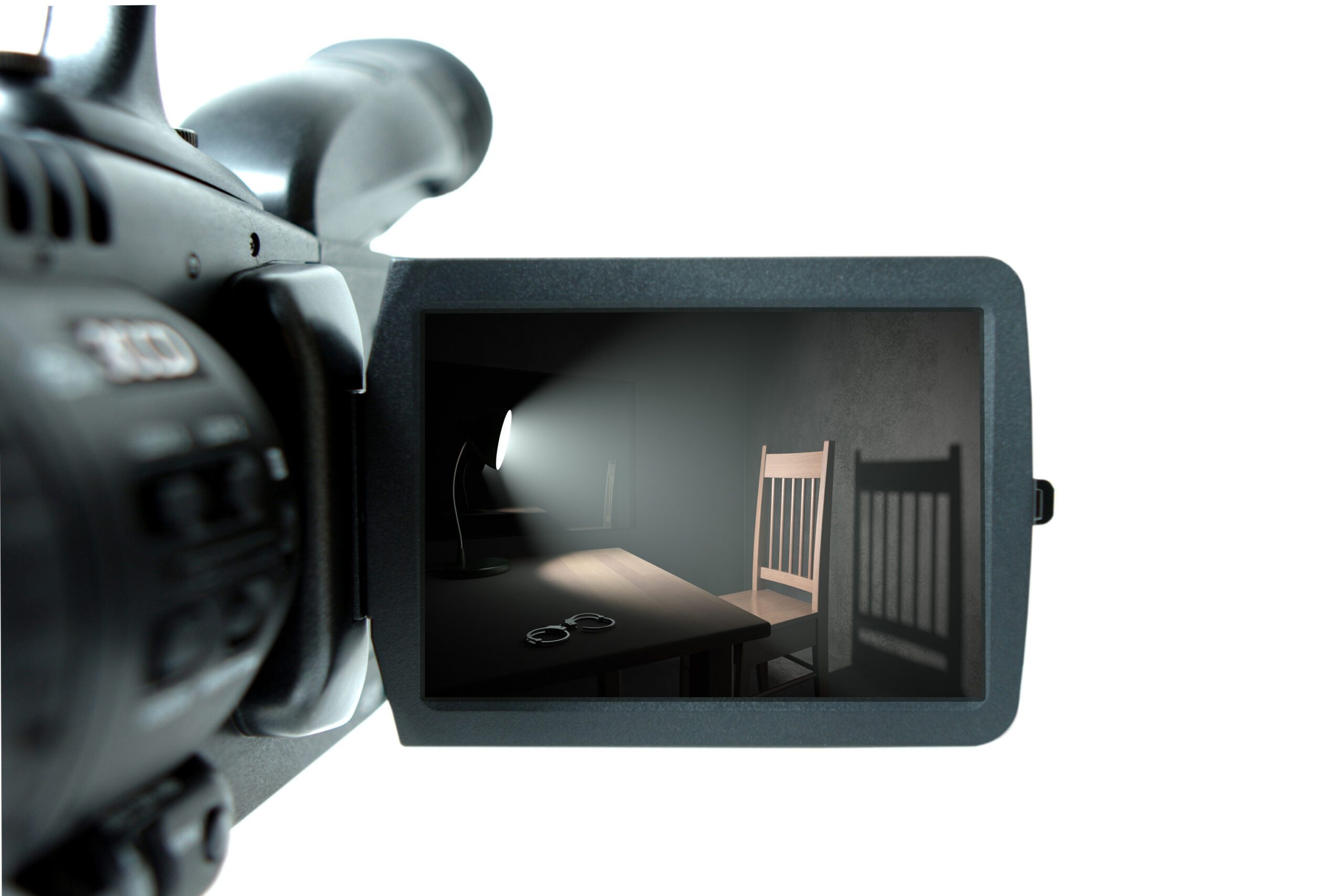New Kansas Law Signed Requiring the Recording of Interrogations to Prevent Wrongful Convictions
05.08.17 By Innocence staff
New law will result in recording interrogations in their entirety for serious felony cases, a top contributor to wrongful convictions
Kansas Governor Sam Brownback has signed a bill into law requiring the recording of custodial interrogations for homicide and felony sexual offenses by Kansas law enforcement agencies. This new law is supported by the Midwest Innocence Project and the Innocence Project, the Kansas Association of Chiefs of Police, Kansas Sheriffs’ Association, Kansas Peace Officers Association, Kansas County and the District Attorneys Association and Kansas Association of Criminal Defense Lawyers. Recording custodial interrogations of suspects in their entirety provides a safeguard against wrongful convictions stemming from false confessions, which played a role in 28 percent of DNA-based exonerations nationally.
In addition to protecting innocent suspects, this practice benefits law enforcement by removing any doubts surrounding valid confessions, protecting officers against allegations of misconduct during the interrogation and reducing court time spent on motions to suppress statements and confessions.
“It’s wonderful that the innocence community, law enforcement and prosecutors worked together on a law requiring recording of interrogations, which will prevent wrongful convictions and enhance the entire criminal justice system,” said Tricia Bushnell, executive director of the Midwest Innocence Project.
Floyd Bledsoe and Eddie Lowery were both wrongfully convicted by false confessions in Kansas, and both cases may have been prevented if police had recorded their interrogations.
Eddie Lowery was wrongfully convicted after he falsely confessed–following a multi-hour interrogation–to sexually assaulting an elderly woman in Ogden, Kansas. He spent nine years incarcerated before he was eventually exonerated by DNA evidence.
Floyd Bledsoe was wrongfully convicted of the 1999 murder of his sister-in-law Zetta Camillee Arfmann. His brother Tom originally confessed to the crime, surrendered the murder weapon and led investigators to the body, but then recanted his confession and told investigators that Floyd had admitted to killing Arfmann. Floyd was subsequently charged with the murder, convicted and spent 16 years in prison until DNA testing pointed to his brother Tom, who confessed to the crime in a suicide note. Law enforcement did not record the interrogations of Tom or Floyd, which would have helped jurors to better assess the brothers’ credibility and place their statements in the proper context.
“If this law had been in effect and the interrogations in my case had been recorded, it could have prevented me from spending 16 years in prison for a crime that I didn’t commit. It’s wonderful that Kansas is moving forward on criminal justice reforms that would protect other innocent people like me from wrongful conviction,” said Floyd Bledsoe.
Last year the issue of recording interrogations was referred to the Kansas Judicial Council, which studies the judicial system and makes recommendations to the legislature and courts. The Judicial Council assigned the issue to the Criminal Law Advisory Committee, whose members include law enforcement representatives, county and district attorneys from across the state, the attorney general’s office, defense attorneys and a district court judge. This broad group of criminal justice stakeholders worked together to develop a proposal that would require law enforcement agencies to adopt their own written policies for recording interrogations in their entirety for, at minimum, the most serious crimes.
Law enforcement and prosecutors should be commended for thoroughly studying this issue and developing legislation that protects innocent Kansans during interrogations, while allowing law enforcement agencies the flexibility to adopt policies that work for them.
“The priority of Kansas law enforcement is justice. Our investigations must result in justice for those responsible for criminal acts, as well as for the victims. But justice for perpetrators and victims are no more important than justice for all persons suspected of committing a criminal act but did not. No officer wants to be responsible for placing an innocent person in prison and no innocent person wants to live under a cloud of suspicion,” said Ed Klumpp, legislative liaison for the Kansas Association of Chiefs of Police, Kansas Sheriffs’ Association and Kansas Peace Officers Association.
Kansas is now the 23rd state in the country to require law enforcement to record certain custodial interrogations. In addition, the U.S. Department of Justice has a policy for federal law enforcement agencies to record interrogations of all suspects in their entirety. This comes almost a year after Governor Brownback signed eyewitness misidentification reforms into law, another leading cause of wrongful convictions. Prosecutors, law enforcement and the innocence community worked collaboratively on this law that now requires agencies to adopt policies with recommended best practices for preventing eyewitness misidentification.
Together, recording interrogations and eyewitness identification laws will go a long way in preventing wrongful convictions and ensuring that law enforcement has the most reliable and accurate evidence.

Leave a Reply
Thank you for visiting us. You can learn more about how we consider cases here. Please avoid sharing any personal information in the comments below and join us in making this a hate-speech free and safe space for everyone.